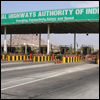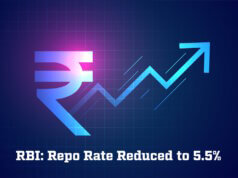The Ministry of Road Transport and Highways and Shipping plans to develop solar powered toll plazas on national highways across the country.
As compared to toll plazas powered by conventional sources of energy, solar powered toll plazas have a reduced carbon footprint.
Given that combustion of fossil fuels for generation of electricity results in considerable emission of CO2, the primary greenhouse gas emitted through human activities, the proposal by the MoRTH for developing solar powered toll plazas can be considered a small but concrete step towards addressing the concerns expressed worldwide over the impacts of climate change.
The MoRTH recently announced a national level design competition and sought design proposals from qualified engineers, architects and associated professionals for developing the solar powered toll plazas. The designs need to be prepared taking into account factors such as functional requirements, sustainability, aesthetics and optimum utilisation of available roof and canopy tops as well as open spaces at the toll plazas without hindering traffic flow and toll operations. They also have to adhere to the section on toll plazas in the Manual of Specifications and Standards for Four Laning of Highways through public-private partnership prepared by the Indian Roads Congress – 2014.
Meanwhile, the MoRTH along with the National Highways Authority of India and the Indian Highways Management Company Limited have initiated various measures to implement a unified Electronic Toll Collection system on national highways. Last month, IHMCL, a company promoted by NHAI, and Axis Bank, signed an agreement for Central Clearing House services and sale of FASTag for ETC at toll plazas on national highways. Earlier this year, IHMCL had signed a CCH service provider agreement with ICICI Bank. Clearing and settlement of electronic toll transactions are a key requirement of the interoperable ETC system.
FASTag is the brand name under which MoRTH is rolling out its ETC programme.
ETC enables road users to pay highway toll electronically without stopping at toll plazas. The unique number of the RFID FASTag affixed on the windshield of the vehicle is read by the readers fitted in the dedicated ETC lanes of plazas and the toll gets deducted automatically. The system helps reduce congestion at toll plazas and allows seamless movement of vehicles on national highways.
Considering that congestions and bottlenecks mainly occur at toll plazas, their efficient management is central to reduction of greenhouse gas emissions. Studies show that the energy consumption of toll road networks can be reduced by removing the bottlenecks and congestion points through the use of Intelligent Transport Systems. Adoption of intelligent payment systems like the ETC minimises the service and queuing time at toll plazas.
The ETC system is currently being made operational on the Delhi-Mumbai stretch of national highways. A nationwide rollout will be carried out by the end of the year.











